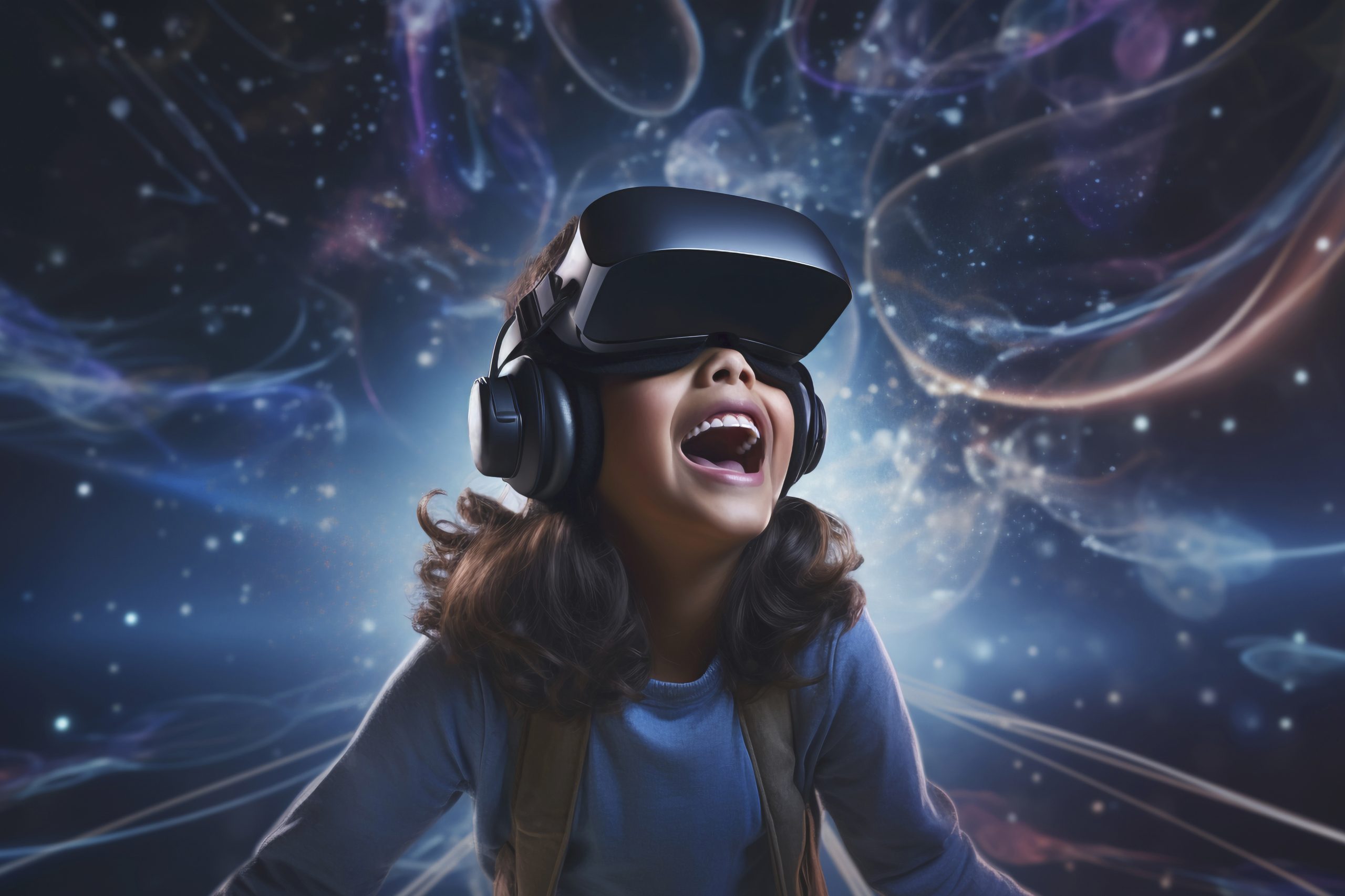While AI has made significant advancements, can AI replace teachers in school?
Teachers serve as facilitators of knowledge, guiding students through the learning process and imparting subject-specific expertise. They possess the human qualities necessary for effective education, such as empathy, understanding, and the ability to connect with students on an individual level. Teachers foster a supportive and nurturing environment that promotes not only academic growth but also personal and social development. They are essential in helping kids develop their values, critical thinking abilities, and creativity. Moreover, teachers provide mentorship, guidance, and emotional support, helping students navigate challenges and develop resilience. The teacher-student relationship is a fundamental aspect of education, as teachers serve as role models and mentors, helping students develop a love for learning and a thirst for knowledge. While AI can support and enhance the educational process, it cannot replicate the human connection and the unique qualities that teachers bring to the classroom. Therefore, the importance of teachers in education cannot be underestimated, as they shape the minds and lives of students in profound and meaningful ways.

Advancements in AI technology in Education
AI has made significant advancements in recent years, empowering machines with impressive capabilities. AI systems can learn from data and get better over time with the use of machine learning algorithms, which eliminate the need for explicit programming. AI can comprehend and produce human language thanks to natural language processing, which improves interaction and communication. AI systems can recognise objects and comprehend images thanks to computer vision, which enables the interpretation and analysis of visual data. Robotics allows machines to carry out activities in the physical world by fusing AI with mechanical systems.
These characteristics have created a wide range of opportunities for the application of AI across many fields, including education. Such as virtual reality (VR) and augmented reality (AR) in education where students can explore virtual environments, engage in simulations, and visualize abstract concepts, making learning more interactive and engaging. Also, data analytics for student performance where AI algorithms can analyze vast amounts of student data, identifying patterns and trends to gain insights into individual and group performance.
Potential Benefits of AI in the Classroom
Personalized Learning Experiences
By customizing instruction and content to each student’s particular requirements and learning preferences, artificial intelligence (AI) offers personalized learning experiences. This customization enhances engagement, understanding, and knowledge retention, as students receive tailored support and challenges based on their abilities and preferences.
Efficient Administrative Tasks
When administrative activities like scheduling, grading, and record-keeping are automated by AI, teachers have more time to devote to lesson planning, student interactions, and individualized support. This automation streamlines administrative processes, leading to increased efficiency in school operations.
Accessible Education for All
AI has the potential to bridge gaps in education by providing access to quality resources and instruction for students in underserved areas or with special needs. AI-powered tools can deliver content in different formats, accommodate diverse learning styles, and offer support for students with disabilities, ensuring inclusive education.

Enhanced Student Engagement
Gamification, virtual reality, and other AI-based technologies can increase student motivation and engagement. By making learning more interactive, immersive, and enjoyable, AI helps students stay actively involved in their education, leading to improved learning outcomes.
Limitations of AI in Education
Lack of Emotional Intelligence
AI systems lack the emotional intelligence that human teachers possess. They cannot fully understand and respond to students’ emotions, which can impact the emotional support and connection that students may need during their learning journey. Emotional intelligence is crucial in creating a supportive and nurturing environment that fosters student well-being and social-emotional development.
Limited Ability to Adapt to Individual Needs
Although AI can provide personalized learning experiences to some extent, its ability to truly understand and adapt to the unique needs of each student is limited. AI algorithms primarily rely on data-driven patterns and may struggle to capture the complexity and nuances of individual student characteristics, strengths, and challenges. Human teachers, on the other hand, can employ their expertise, intuition, and experience to tailor instruction and support to each student effectively.
Ethical Concerns and Privacy Issues
The use of AI in education raises questions about privacy and ethics. Massive volumes of data, including student personal information, are gathered and processed by AI systems. Ensuring the security and responsible use of this data becomes crucial to safeguard student privacy and protect against potential misuse or unauthorized access. Ethical considerations also arise regarding bias in AI algorithms and the potential for reinforcing existing inequalities in education.
Impact on Social Interactions and Relationships
AI’s increasing presence in the classroom may impact social interactions and relationships among students. Human interaction, collaboration, and communication skills are vital aspects of education that contribute to the development of social competence and interpersonal skills. Over Reliance on AI systems may inadvertently reduce opportunities for face-to-face interaction and hinder the development of these important skills.
The Role of Teachers in the AI Era
Unique Human Qualities and Skills
In the AI era, the role of teachers becomes even more crucial. Teachers possess unique human qualities, such as empathy, intuition, and understanding, that are essential for effective education. These qualities allow teachers to connect with students on a deeper level, understand their individual needs, and provide the necessary support and guidance throughout their learning journey.
Fostering Critical Thinking and Creativity
Teachers play a vital role in fostering critical thinking skills and nurturing students’ creativity. They teach kids to think critically, evaluate data, work through issues, and use higher-order thinking skills. Teachers provide the guidance and space for students to explore their creativity, develop innovative ideas, and express themselves through various mediums.
Emotional Support and Mentorship
Human teachers offer emotional support and mentorship to students, which AI systems cannot replicate. Teachers provide a safe and nurturing environment where students can seek guidance, share their concerns, and develop social-emotional skills. They serve as mentors, helping students set goals, navigate challenges, and develop resilience.
Collaboration with AI for Effective Education
Rather than replacing teachers, AI can complement and enhance their teaching practices. Teachers can collaborate with AI systems to leverage their capabilities and provide personalized instruction, data-driven insights, and feedback. By integrating AI as a tool in the classroom, teachers can optimize their instructional approaches and focus on areas where human expertise is indispensable, such as fostering critical thinking, promoting social interactions, and addressing students’ individual and emotional needs.
Finding a Balance: AI and Human Teachers
Integration of AI as a Teaching Tool
To find a balance between AI and human teachers, AI can be integrated as a powerful teaching tool in the classroom. AI systems can assist teachers in tasks such as content delivery, assessment, and data analysis. By leveraging AI’s capabilities, teachers can enhance instructional methods, provide personalized learning experiences, and gain valuable insights into student progress. The integration of AI as a tool empowers teachers to make informed decisions, optimize their teaching approaches, and cater to individual student needs more effectively.

Professional Development for Teachers in AI Use
It is crucial to give instructors opportunities for professional development if AI is to be used in education effectively. Training programs can equip teachers with the knowledge and skills necessary to leverage AI tools and technologies in the classroom. Teachers can learn how to interpret AI-generated data, design AI-supported learning experiences, and understand the ethical considerations surrounding AI use. Ongoing professional development ensures that teachers stay updated with the latest advancements in AI and can effectively integrate it into their teaching practice.
Creating a Hybrid Learning Environment
The ideal approach is to create a hybrid learning environment that combines the strengths of AI and human teachers. This involves leveraging AI for its efficiency, data analysis capabilities, and personalized learning experiences, while ensuring that human teachers maintain their central role in providing emotional support, mentorship, critical thinking development, and fostering social interactions. A hybrid learning environment allows for the best of both worlds, where AI complements and enhances the instructional practices of human teachers, leading to a comprehensive and effective educational experience for students.
Final Thoughts
The role of human teachers cannot be replaced or overlooked in the AI era. Their ability to connect with students on a personal level, provide emotional support, foster critical thinking, and facilitate social interactions is invaluable. Human teachers bring the human touch to education, which is essential for holistic student development.
The true potential lies in the collaboration between AI and human teachers. By integrating AI as a teaching tool and providing professional development for teachers, AI can be leveraged to enhance instruction, personalize learning experiences, and provide valuable insights. The synergy between AI and human teachers can lead to a better educational experience, where the strengths of both can be utilized to optimize student learning outcomes.



